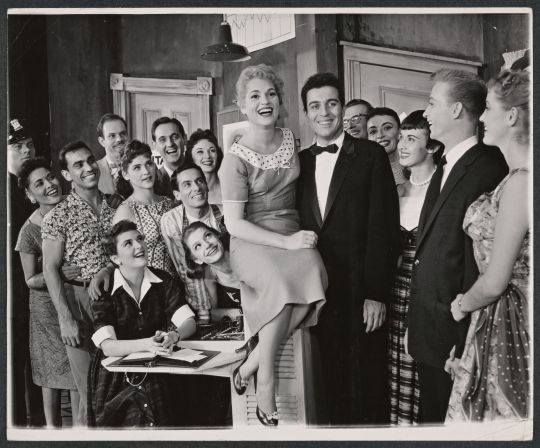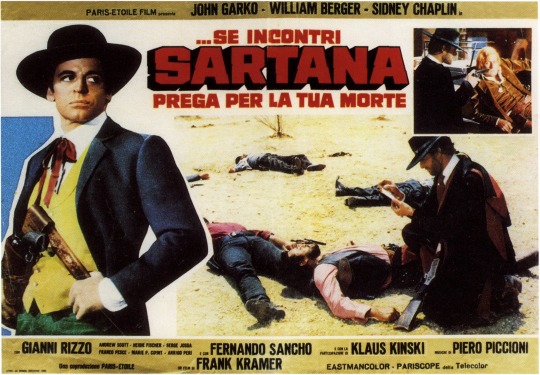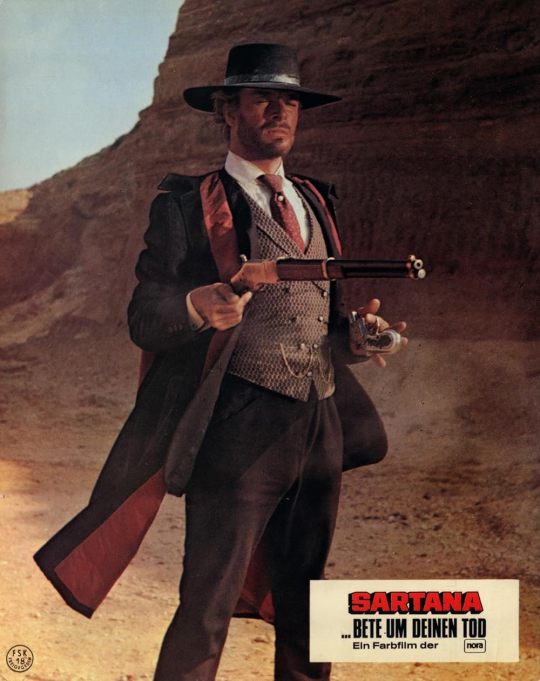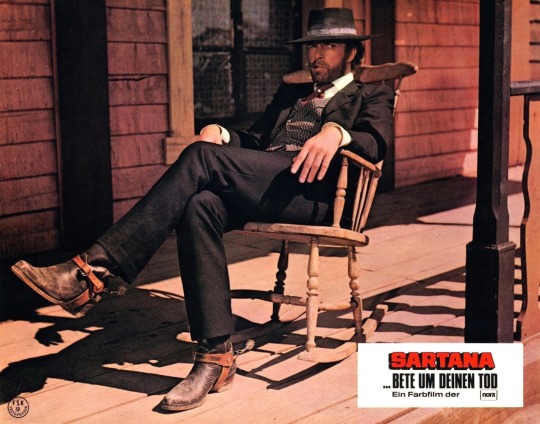#sydney chaplin
Explore tagged Tumblr posts
Text

Charlie Chaplin and his brother Sydney during the filming of a scene from the movie "A Dog's Life" (1918)
25 notes
·
View notes
Text




“Shoulder Arms” 1918
16 notes
·
View notes
Text




99 years ago (March 30, 1926) Sydney Eryl Chaplin, Charles Chaplin's second son from his relationship with Lita Grey, was born.
Sydney Earl Chaplin he was one of the founding members of the Circle Players at The Circle Theater, now known as El Centro Theatre, and appeared in several Broadway productions, including Bells Are Ringing opposite Judy Holliday in 1957, for which he won a Tony Award for Best Performance by a Featured Actor in a Musical, and Funny Girl opposite Barbra Streisand in 1964, for which he was nominated for a Tony Award. Sydney Chaplin also had supporting roles in two of his father's films, Limelight (1952) and A Countess from Hong Kong (1967). Sydney Chaplin helped complete and publish his mother's 1998 autobiography, Wife of the Life of the Party. He also wrote the book's forward, where he shared some of his own history and private thoughts on his parents.
8 notes
·
View notes
Text









Charles Chaplin Jr's book “My Father, Charlie Chaplin” written in 1960, gives a fair and honest account of Chaplin both as a father and a man. But it’s the below passage regarding Paulette Goddard, what she meant to two young boys Charles Jr. 7 and Sydney 6 that is one of the most touching. They met Paulette in late 1932, their own mother Lita was often away on singing tours.
“This is Paulette Goddard boys. Now what do you say to the nice lady?”
“Syd and I lifted our heads and looked into that friendly face with its mischievous conspiratorial smile, and we lost our hearts at once, never to regain them through all the golden years of our childhood. Have you ever realized, Paulette, how much you meant to us? You were like a mother, a sister, a friend all in one. You lightened our father’s spells of somber moodiness and you turned the big house on the hill into a real home. We thought you were the loveliest creature in the whole world. And somehow I feel, looking back today, that we meant as much to you, that we satisfied some need your life, too.”
Top - Pictured Charles Jr’s book and visiting his father at his home in Switzerland, holding his daughter Susan Maree, Charlie’s first grandchild.
Two notables pictured Shirley Temple (bottom) and author H.G. Wells (above that).
#paulette goddard#charlie chaplin#charles chaplin jr.#sydney chaplin#h.g. wells#cecil reynolds#shirley temple
16 notes
·
View notes
Text








Beautiful color slides from the original Broadway production of "Bells Are Ringing" 1956. Starring Sydney Chaplin (Charlie's 3rd son) and Judy Holliday. Both won Tonys for their performance.
Judy Holliday starred in the film version released in 1960 with Dean Martin taking the male lead.
New York Public Library Digital Collection (x)
11 notes
·
View notes
Text



Charlie Chaplin and Madame Olga Petrova, stage and screen actress visits set of "Shoulder Arms" July 9th 1918. Born Muriel Harding in England 1884, later changing her name to something right out of the Russian Empire. Brother Sydney in bottom photo.
Charlie would have been shooting scenes he discarded depicting him as a family man and Army draftee.
Top and bottom photo credit to my facebook friend Shunichi Ohkubo.
16 notes
·
View notes
Text

26 February 1916, Charlie Chaplin signed his contract with the Mutual Film Company.
Many of the major studios of the time expressed interest in signing Charlie Chaplin, including Universal, Triangle, Famous Players, Vitagraph and Fox. The winning bid, however, was submitted by John R. Freuler, president of the Mutual Film Corporation. The company existed for only three years and was founded the year Charlie Chaplin arrived in the United States. Freuler agreed to a signing bonus for Chaplin of $150,000 (Charlie immediately signed more than half of Sydney's bonus), and under the agreement he was to be paid $10,000 a week (a significant advance compared to Essanay's weekly rate of $1,250 dollars).
In the photo from the right: Charlie Chaplin, his brother Sydney Chaplin and John R. Freuler, president of the Mutual Film Corporation.
7 notes
·
View notes
Text

Looks like Charlie Chaplin in the background center and brother Sydney getting out of the pool.
4 notes
·
View notes
Text
Remembering Satan's Cheerleaders star Sydney Chaplin on the anniversary of his death.

R.I.P. 1926 - 2009
#rest in peace#sydney chaplin#movies#satan's cheerleaders#art#actor#r.i.p.#horror#horror art#movie art#drawing#movie history
2 notes
·
View notes
Text

After the success of the film "City Lights" (1931), Charlie Chaplin traveled around the world, mainly Asia, in the company of his brother Sydney (1932).
Pictured is Charlie aboard the Japanese liner Suwa Maru, which had sailed from Naples, Italy, bound for Singapore, accompanied by Sydney's brother (right), Kono (Toraichi Takano), believed to be Chaplin's secretary (rear left), and the ship's captain, March 1932. (Incidentally, Chaplin was also the godfather of Toraichi Takano's son, Spencer. "Spencer" was Chaplin's middle name.) This journey was immortalized using archival footage, often shot by Chaplin himself, and reading texts taken from his article "A Comedian Sees the World", his autobiography and Sydney Chaplin's travel notes.
6 notes
·
View notes
Text

Sydney Chaplin side eyes Joan Collins in an original publicity still for Land of the Pharaohs (1955)
3 notes
·
View notes
Text

Charlie Chaplin's son Sydney and Judy Holiday during the Broadway production of "Bells are Ringing", for his role as Jerry Moss in 1957 he won a Tony Award. In 1960 the play became a movie, while Judy Holiday kept her role, his went to Dean Martin.
17 notes
·
View notes
Text



Charlie Chaplin and brother Sydney (seated to his left top photo) in Naples, Italy March 6th 1932. From there they boarded the Japanese ship Suwa Maru, they'd spend the next 3 months visiting through out Asia before heading back to Los Angeles in June.
11 notes
·
View notes
Text




If You Meet Sartana Pray for Your Death (1968) Gianfranco Parolini
March 17th 2024
#if you meet sartana pray for your death#1968#gianfranco parolini#gianni garko#william berger#franco pesce#fernando sancho#heidi fischer#sydney chaplin#gianni rizzo#klaus kinski#If You Meet Sartana... Pray for Your Death#... If You Meet Sartana Pray for Your Death.#Gunfighters Die Harder
8 notes
·
View notes
Text

On February 13, 1931, Charlie Chaplin sailed for Europe on a tour to promote his new film, "City Light's", during which he visited England, Germany, Austria, Italy, and France. After the tour ended, Chaplin stayed in Europe—mostly in Switzerland and the French Riviera—because he simply did not feel like returning to Hollywood. In February 1932, after being away from home for exactly a year, Charlie Chaplin decided to return to California. Instead of taking the shorter, faster route across the Atlantic and then to the American continent, he took the longer, roundabout route through the Orient, a part of the world he had always wanted to visit and explore.
Not wanting to travel alone, Charlie Chaplin asked his brother Sydney, then living in Nice in the south of France, to accompany him.
Charlie's personal secretary, Toraichi Kono, a Japanese who had worked for him since 1916, also accompanied him on the journey. On March 2, 1932, they boarded the Japanese liner NYK (Nippon Yusen Kaisha) Suwa Maru at the port of Naples, Italy. Passing through the Suez Canal and Ceylon (now Sri Lanka), they arrived in Singapore on March 27, according to the local press, - although the date March 25, a Friday, is listed in the itinerary given in Charlie Chaplin's travel diaries.
Pictured: Charlie Chaplin was the guest of Ranee of Sarawak, her daughter H.H. Daya Elizabeth and Mr. H.C. Strickland, on April 27, 1932. Charlie's brother Sydney Chaplin is visible on the right.
Courtesy of the establishment of the Roy Export Company.
3 notes
·
View notes
Text

"The Bond" - a 1918 film directed by Charlie Chaplin.
The main roles were: Charlie Chaplin, Edna Purviance, Henry Bergman, Sydney Chaplin, Tom Wilson, Joan Marsh, Albert Austin.
The film is full of patriotic scenes intended to encourage people to purchase bonds, the money from which will support the Allied forces fighting in World War I. The creators refer to interpersonal bonds such as friendship, love and marriage, at the same time emphasizing the great importance of freedom. (X)
#charlie chaplin#edna purviance#henry bergman#sydney chaplin#tom wilson#joan marsh#albert austin#1918#the bond#liberty loan war bond drive
2 notes
·
View notes